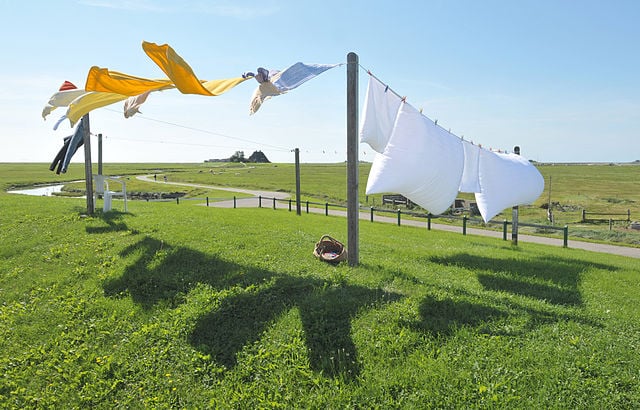Uniquely Canadian French Idioms
Table of Contents
Photo via Wikimedia
Maybe you’ve heard that Canada officially has two languages: English and French, and that the majority of its residents are able to speak both fluently. While the French language in Canada and Francophone culture does have quite a bit of depth to it, English is still trumping French on the Canadian curling rink.
Interestingly enough, though, just as Canadian English has taken on a life of its own, Canadian French is quite different from the French that you hear spoken in other Francophone areas of the world. There are expressions, words and even an accent that is entirely uniquely French Canadian, believe it or not. To make things a little easier for you, reader who is interested in learning French, we’ve compiled a list of idioms that French Canadians use that are startlingly different from French speakers in other areas of the world:
→Sign Up Now: Free Trial Canadian French Lesson With a Native Speaker Teacher!←
1. Se faire chanter la pomme (“Singing the apple) – to flirt
This one might not make sense right off the bat, but stop and think of the Adam and Eve story. The apple was a symbol of temptation, desire, and the naughtily forbidden. If we keep this in mind, then we can understand how “singing the apple” could be a way of seduction, flirtation, a way of making one’s desires known!
Another, more recent, theory on the idiom says the meaning of this phrase may come from the history and tradition of the French Canadian people. French Canadian tradition is rich in song and dance. And, of course, there are many ways to dance. In a time when lovers could not be so forward with their affections, dancing palm-to-palm (or paume, in this case) would be a way of expressing this desire and love. Over time, the word paume (meaning palm) may have changed into pomme (meaning apple), giving us the phrase ‘chanter la pomme’.
2. Virer une brosse (“brush fire” [loosely]) – to get drunk or go on a bender involving alcohol
Origins on this one are a little drunk-googly, but it may have something to do with the old French word broce meaning wood or undergrowth, like “brush” in English. The word brocehas the same roots as the wordbrousseorbroussaille (meaning brush or scrub). Partir à la broce then meant to go into the brush or to go hunting. Broce then started to take on the meaning of adventure and travel and then eventually over time it turned into adventuring into the world of alcohol and getting completely wasted!
3. Passer la nuit sur la corde à linge (“To spend the night on the clothesline.”) – To look tired, as if you haven’t slept at all

Photo via Wikipedia
This one has absolutely nothing to do with washing clothes or a clothesline! Asking someone, “Passez-vous la nuit sur la corde à linge?” (Did you spend the night hanging on a clothesline?) means it looks like you spent the whole night tossing and turning. It doesn’t have to have any sexual overtones, but instead, could just refer to someone suffering from insomnia. The expression draws the comparison between the way someone looks after a night of no sleep to the way clothing that has been left out on the line overnight looks in the morning, wrinkly and tired.
Each of these expressions is uniquely French Canadian and can come in quite handy when you meet a Quebecois (or Quebecer in English) in life or on your travels.
→Sign Up Now: Free Trial Canadian French Lesson With a Native Speaker Teacher!←
If you’re looking for a job in Canada, you should know that speaking Canadian French fluently will open lots of doors for you in all industries. To reach your linguistic objectives, what could be better than taking classes with a qualified French Canadian teacher? Our tutors can prepare customized classes, specially prepared to cater to your interests and needs, so you can achieve your goals faster and while staying motivated. If you’d like to give us a try, you can sign up for a Free Trial French lesson with one of our native instructors, no strings attached!




